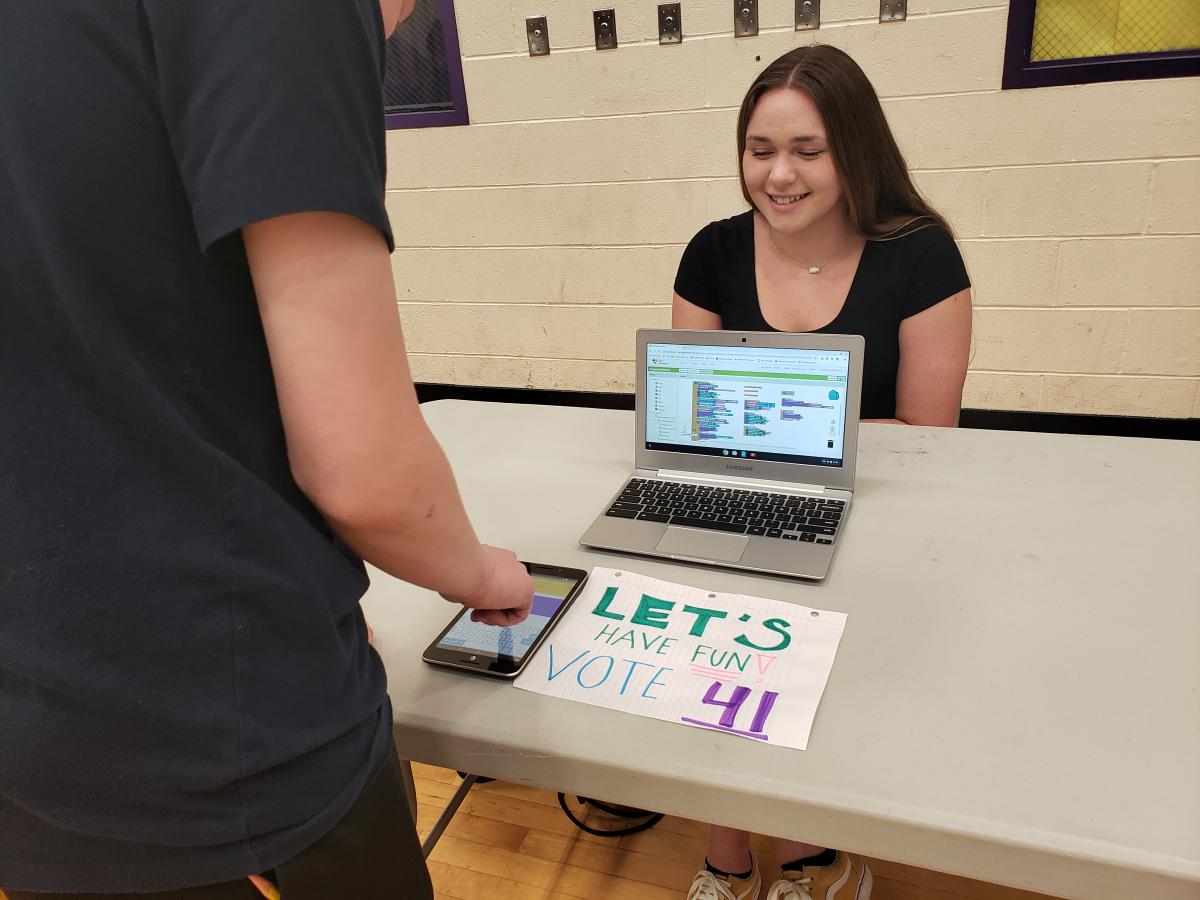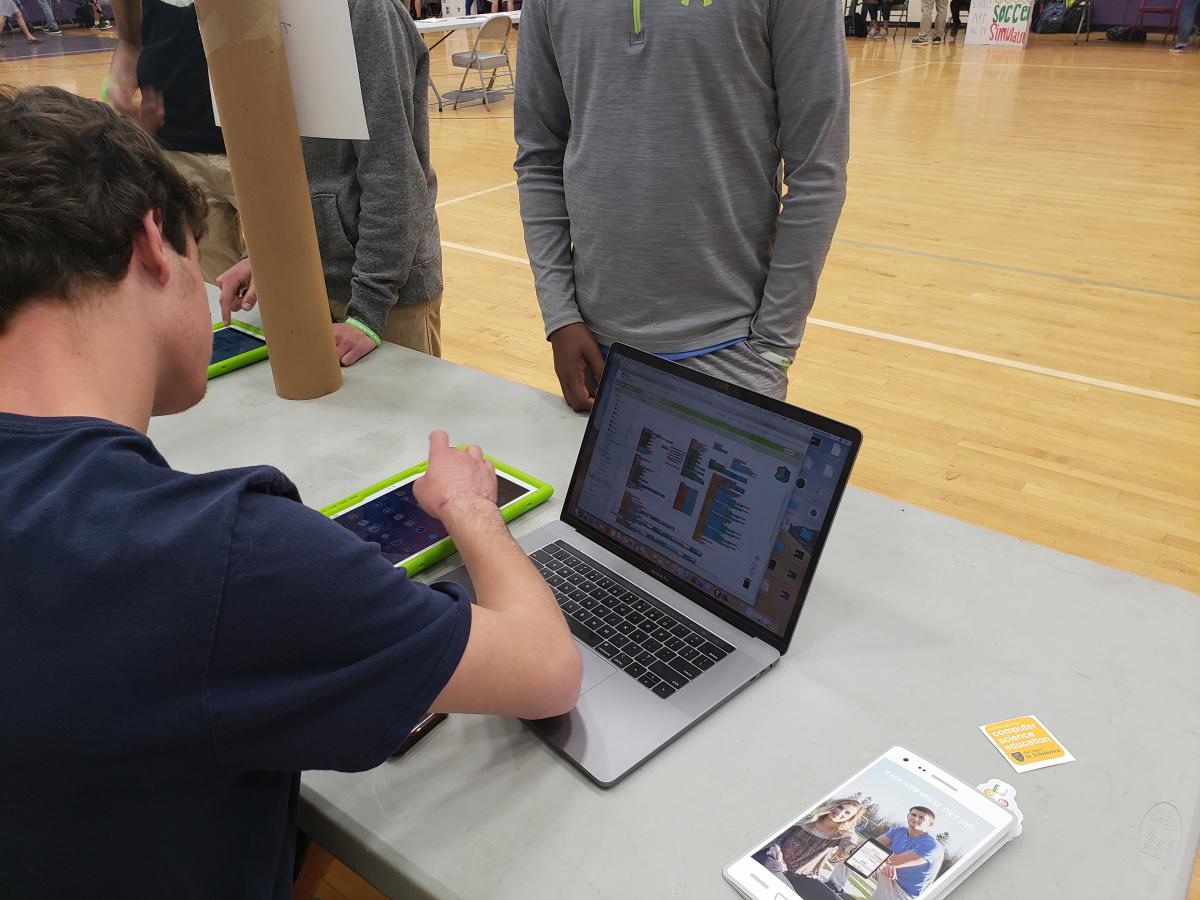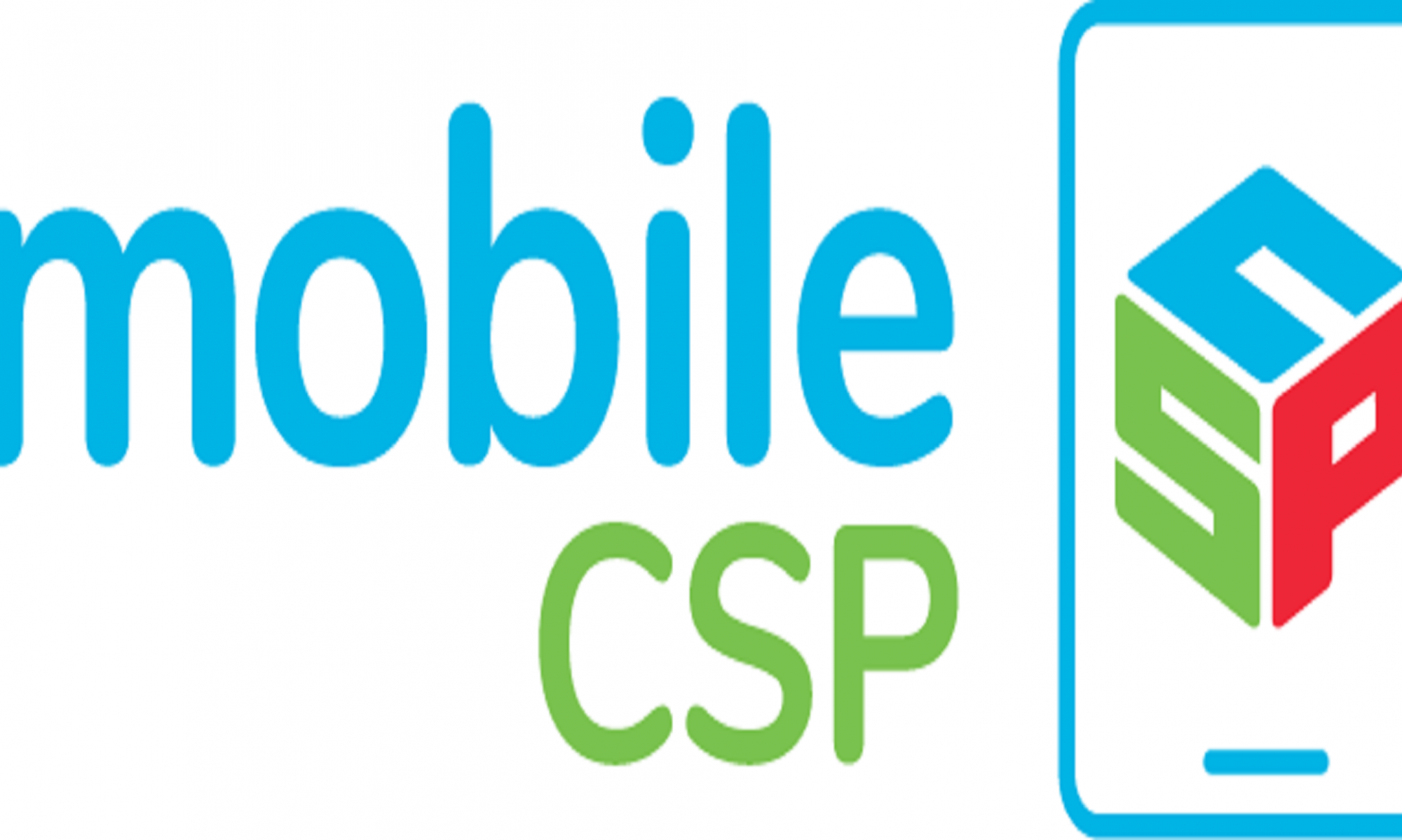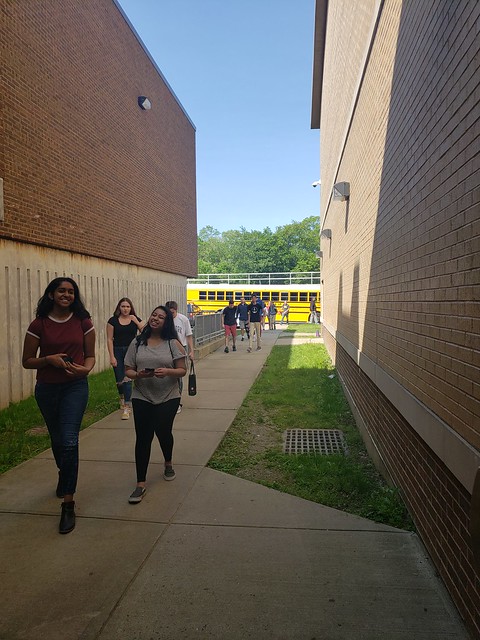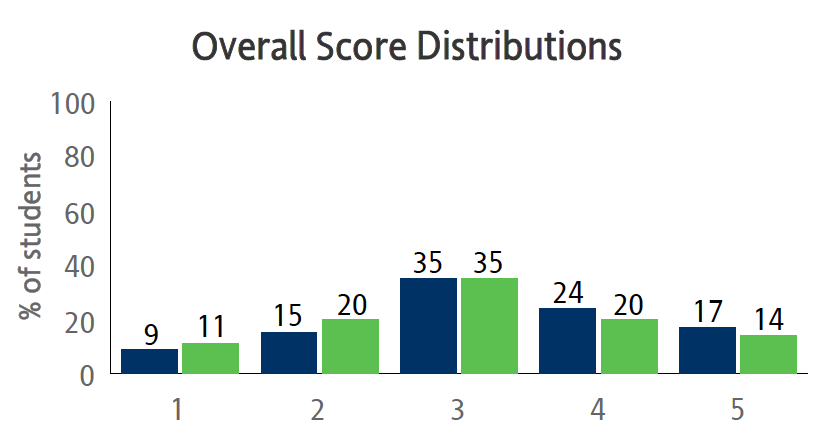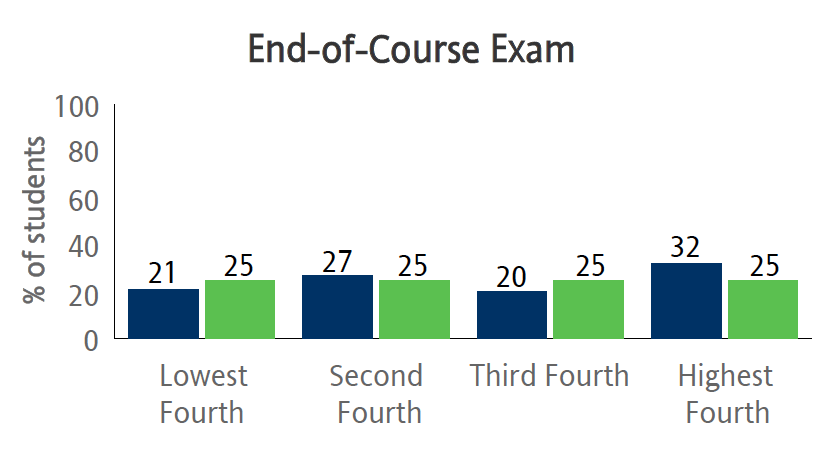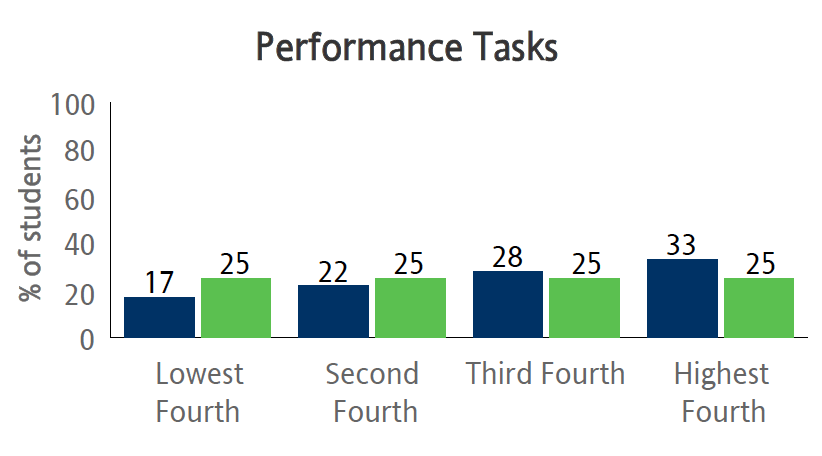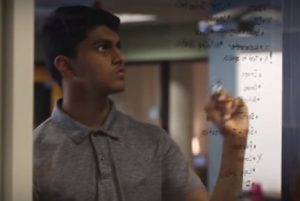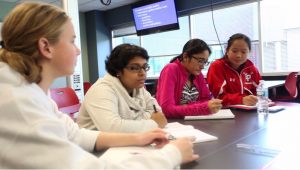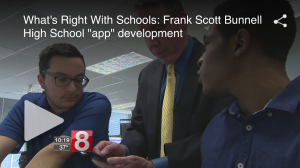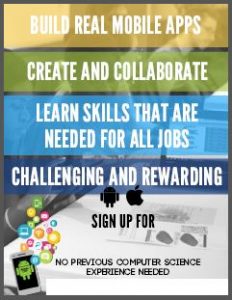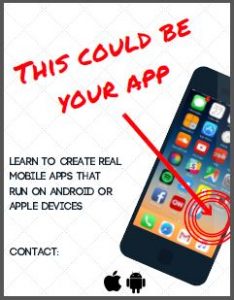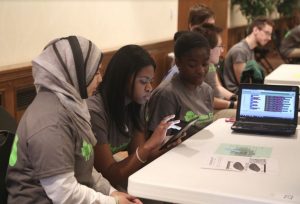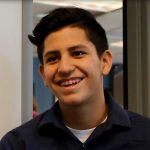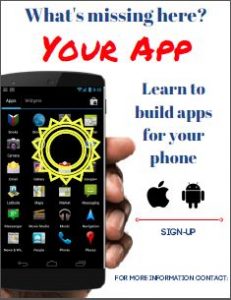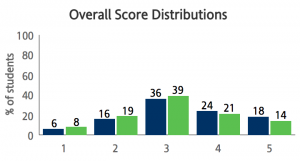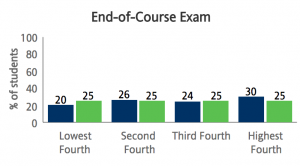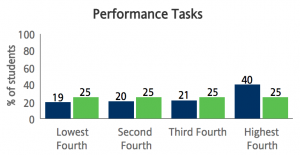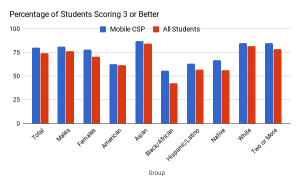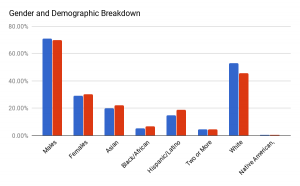The U.S. Department of Labor estimates that by 2020, there will be more than 1.4 million computer-related job openings in the United States. At the current graduation rate though, only about 30 percent of those jobs will be filled with U.S. computing bachelor graduates.
To increase interest and graduate numbers, Mobile Computer Science Principles (CSP) is helping high school teachers and students see how fun, easy and engaging computer science education can be for most anyone.
“I like teaching Mobile CSP because it opens my students’ eyes to how technology influences almost everything around them,” said Scott Kaminski, a teacher at Trumball (Conn.) High School who has introduced more than 130 students to the course. “This curriculum covers a wide range of topics, which makes it easy for teachers to reference current events and the interests of their students. This creates something real for students, which makes the topics and concepts more accessible for them.”
Mobile CSP is a College Board endorsed AP Computer Science Principles course that works to engage high school students, enhance writing and communication skills and foster collaboration and creativity. In 2017-18 alone, there are more than 600 teachers and 10,000 students using Mobile CSP curriculum.
With an extra push to get teachers and kids excited about the program, Mobile CSP is participating in CSEd Week, Dec. 4-10. According to the csedweek.org website, only 35 states allow students to count computer science courses toward high school graduation. There are currently 486,686 open computing jobs nationwide but only 42,968 computer science students graduated into the workforce last year.
“…perfect course for kids who like using the computer but are nervous about computer science.”
Mobile CSP is working to change those numbers, starting with encouraging teachers to bring an accessible version of computer science into the classroom.
“It’s a perfect course for kids who like using the computer but are nervous about computer science,” said Sarah Spaunhorst, a teacher at Visitation Academy, St. Louis, Mo. “It does such a good job of explaining the main concepts of computer science without pressure.”
In celebration of CSEd Week, Mobile CSP is offering a new Hour of Code activity called Play That Tune. For the activity, students will build code to play the tunes given in puzzles, and after all levels are completed, students can create their own tune. Finally, the code can be packaged as an Android app. Participants can also try MIT App Inventor. By requesting a kit from Mobile CSP, teaches will receive stickers, posters, handouts and promotional information.
Coding and Mobile CSP isn’t just about having fun though. With Mobile CSP, students build apps with real world solutions to local community problems. For example, one group of students built an app to report gang activity in their community. And, for some students, it could change their career path or outlook.
“Fun, easy to pick up, and rewarding.”
“The feedback that I receive about the class is that it is fun, easy to pick up, and rewarding. I have had a handful of students say that they may pursue computer programming as a career now because of this class,” said Griswold (Conn.) High School teacher Andrew Meislitzer, who has taught about 20 students Mobile CSP.
Mobile CSP offers continuing education for teachers either online or at regional sites around the country, including The College of St. Scholastica (Duluth, Minn.). Once teachers have completed the course, they are ready to share the added knowledge with their students.
To find out more about Mobile CSP or how to sign up for the course and materials, visit mobile-csp.org.
